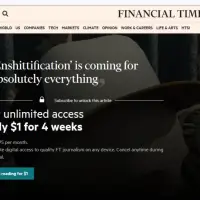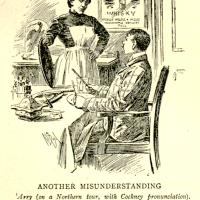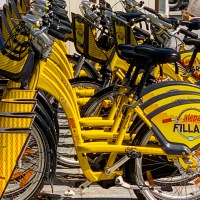 The Broken Earth Trilogy by N.K. Jemisin
The Broken Earth Trilogy by N.K. Jemisin
My rating: 4 of 5 stars
I have just finished reading N.K. Jemisin’s Broken Earth Trilogy, which has the distinction of winning the Hugo Award for Best Novel in three consecutive years for each of the three novels in the series. Jemisin is a highly sophisticated world-builder, with gorgeous prose, rich characters, complex speculative world logic, and a critical discipline that brings a satisfying ending to the trilogy. I am tempted to write that Jemison sets a new standard from what CliFi can be, but it is really a new 21st-century invitation to possibilities for SciFi as a whole. Jemisin has Larry Niven’s capacity for structure and space as she imagines the deep future–a real pushback against the great near-future stories being produced these days.
 Unfortunately for me, however, she also has J.G. Ballard’s capacity for darkness and ambiguity in character development and time-play. Combined with the precise use of a second-person storytelling voice in much of the trilogy, this was not an enjoyable series for me to read. After the first book, I found myself needing to will myself to read. Perhaps because I am a soft reader or because of my season of life, it was work to get through them.
Unfortunately for me, however, she also has J.G. Ballard’s capacity for darkness and ambiguity in character development and time-play. Combined with the precise use of a second-person storytelling voice in much of the trilogy, this was not an enjoyable series for me to read. After the first book, I found myself needing to will myself to read. Perhaps because I am a soft reader or because of my season of life, it was work to get through them.
And these are difficult books to read–intentionally so, I believe. I am sure that comparisons Octavia Butler abound, as both authors play with gender, race, and the sense of “other” in sophisticated ways. And both authors intend to alienate the reader, unwilling as they are to make simple parables and excelling in style. Finally, both authors cause us to ask questions about who we are as people, both individually and communally, but also as a race. While the comparison works between Jemisin and Butler–though I think it comes from them being both black American women authors writing SF–Jemison is much more complex in the technological aspects of her world’s structure. And I always feel a little more hope reading Butler, though Jemisin is still offering hope here, I believe.
Quite frankly, I finished the trilogy of curiosity, but also a sense of duty to such a groundbreaking author who in the last decade has either won or been nominated for most major awards. I read the trilogy as a way to honour the skill she shows, but I could never break into enjoyment. Overall, I think the series warrants four stars, but for those that love it–and there are many–there is no shame in giving five stars (as I did for the first book).
Added note: Now that I’ve been away from the series for a few days, I am struck by how much the fictional world has stuck with me. It is usually the poetry or characters that do that, which I think speaks to Jemisin’s skill as a world-builder.






















Yay, you reviewed my favourite sci-fi book! Jemisin has talked about her choice to use second person in interviews and on her blog. It didn’t stop me from loving The Fifth Season, although it was by far the best of the three, I thought.
That’s great, C.J. It is a pretty strong first book and highly skilled world-building overall. I thought the 2nd person was strong in the 1st book, but wore on my. It makes best sense when the three books are read together.
Pingback: 2019: A Year of Reading: The Nerd Bit, with Charts | A Pilgrim in Narnia
Pingback: Nnedi Okorafor Deep Future Story for the Moment, Binti | A Pilgrim in Narnia
Pingback: Hugo Award 2020: Best Novel Roundtable | A Pilgrim in Narnia
Pingback: Hugo Award 2020: Best Novel Roundtable (Full Video) | A Pilgrim in Narnia
Pingback: Thesis Theater: Jens Hieber, “Negotiated Symbiosis: Power, Identity, and Community in the Works of Octavia E. Butler” (Oct 2nd, 7pm Eastern) | A Pilgrim in Narnia
Pingback: Three Myths Retold: Madeline Miller’s Song of Achilles, Margaret Atwood’s Penelopiad, and C.S. Lewis’ Till We Have Faces | A Pilgrim in Narnia
Pingback: Blogging the Hugos 2021 (Series Launch) | A Pilgrim in Narnia
Pingback: Mary Robinette Kowal’s The Relentless Moon and the Lady Astronaut Universe (Blogging the Hugos 2021) | A Pilgrim in Narnia
Pingback: Sarcastabots, The Wall-E Effect, and Finding the Human in Martha Wells’ Network Effect (Blogging the Hugos 2021) | A Pilgrim in Narnia
Pingback: A Time to Listen: Rebecca Roanhorse’s Astonishing Novel Black Sun (Blogging the Hugos 2021) | A Pilgrim in Narnia
Pingback: N.K. Jemisin’s Super Strange Urban Apocalypse in The City We Became: Part 1: The Allegory That is Born | A Pilgrim in Narnia
Pingback: N.K. Jemisin’s Super Strange Urban Apocalypse in The City We Became: Part 2: The City I Can’t Become (Blogging the Hugos 2021) | A Pilgrim in Narnia
Pingback: Hugo Award 2021: Best Novel Roundtable (Sat, Dec 18th, 6pm Eastern) | A Pilgrim in Narnia
Pingback: 2021: My Year in Books: The Infographic | A Pilgrim in Narnia
Pingback: How Long ’til Black Future Month? by N.K. Jemisin (a review) | A Pilgrim in Narnia
Pingback: Thoughts on Classic and Contemporary SF vs. Fantasy Hugo Best Novel Award Winners while Failing to Write a Review of a Great Book that was not Nominated | A Pilgrim in Narnia
Pingback: 2022: My Year in Books: The Infographic | A Pilgrim in Narnia
Pingback: Sharp Novel Minds and Pithy First Lines, with Jane Austen, C.S. Lewis, J.R.R. Tolkien, Dorothy Sayers, Geo. MacDonald, G.K. Chesterton, Ray Bradbury, N.K. Jemisin, Nalo Hopkinson, Margaret Atwood and more! | A Pilgrim in Narnia